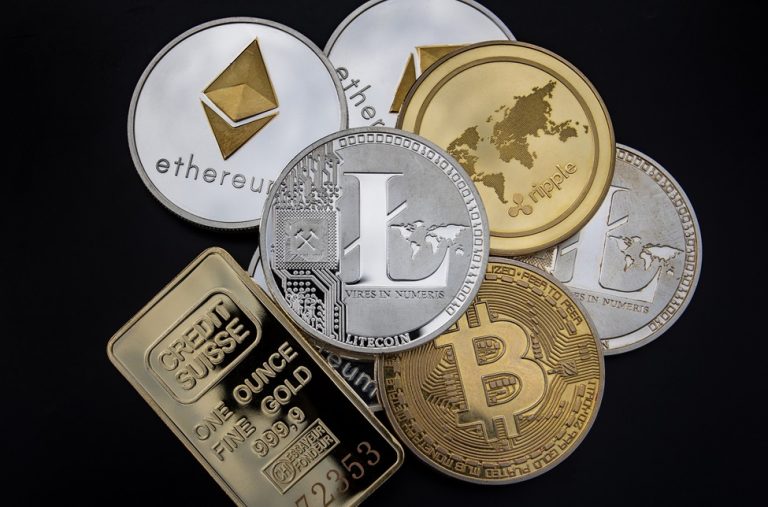
In the ever-twisting saga of politics and finance, former President Donald Trump has thrown his hat into the crypto ring with “The DeFiant Ones,” a decentralized finance (DeFi) platform. Promoted on his Truth Social platform, it’s touted as a way to liberate the average Joe from the clutches of financial elites.
Now, if you’re scratching your head wondering if this is the same Trump who once called Bitcoin “a scam,” you’re not alone. It seems the winds of the crypto world have shifted, and so have the sails of the Trump fleet. With promises of shaking up the financial status quo, the Trump family is now embracing the digital gold rush.
Details are as scarce as humility at a billionaire’s convention, but the buzz is undeniable. The platform’s launch is shrouded in mystery, much like the plot of a spy novel where the protagonist has a penchant for gold-infused buildings and reality TV shows.
Register for Tekedia Mini-MBA edition 19 (Feb 9 – May 2, 2026): big discounts for early bird.
Tekedia AI in Business Masterclass opens registrations.
Join Tekedia Capital Syndicate and co-invest in great global startups.
Register for Tekedia AI Lab: From Technical Design to Deployment (begins Nov 15th).
Just recently, Bitcoin decided to play hopscotch between the $60,000 and $62,000 lines, as if it were deciding whether to dip its toes in the pool or jump in headfirst. The broader crypto market watches with bated breath, like an audience at a stand-up show, waiting for the punchline.
But let’s not forget the supporting cast, the altcoins, who follow Bitcoin’s lead like a troupe of improvisational actors, never quite sure of their next move but always ready to take the stage. So, if you’re keeping score, or rather, checking your crypto wallet, remember that in the grand casino of digital currencies, Bitcoin is both the high roller and the wildcard.
The recent surge in AAVE’s price, which saw a remarkable 45% increase, has been attributed to several key factors that have excited investors and market watchers alike. This decentralized finance (DeFi) token’s performance has outshone other top cryptocurrencies, and here’s why.
Firstly, the Aave-Chan Initiative’s founder, Marc Zeller, proposed a significant change to the tokenomics of AAVE by introducing a fee switch. This would redistribute the platform’s net excess revenue to vital ecosystem participants and support a buyback of tokens from the secondary market. This proposal was seen as a game-changer, potentially creating a positive feedback loop that could enhance the token’s value.
Moreover, the “Umbrella” proposal aimed to revamp the protocol’s risk management and ease market pressures. It suggested a shift from the current “seize and sell” loan liquidation process to a “seize and burn” mechanism, which could alleviate sell-side pressures during loan liquidations.
Zone Payment Network has entered into a strategic partnership with the Nigeria Inter-Bank Settlement System (NIBSS) to enhance the Point-of-Sale (POS) integration process across the country. This collaboration is poised to revolutionize the payment terminal service aggregator functions by harnessing the power of blockchain technology.
The partnership aims to address the challenges of transparency and efficiency in Nigeria’s payment system. By leveraging blockchain, the initiative promises to streamline transaction processing between banks and other financial service providers, thereby enhancing the reliability and security of transactions.
A key feature of this partnership is the automated resolution of chargebacks, which will allow for refunds of declined transactions to be processed swiftly, reducing the need for manual intervention and improving the customer experience. Additionally, the real-time validation of transaction status will improve liquidity and overall business operations, proving to be a game-changer for merchants.
Australia’s Securities Regulator has emerged victorious against Kraken’s local operator. It seems that even mythical sea creatures must abide by the rules when swimming in the regulatory waters down under. The Federal Court of Australia has ruled that Bit Trade Pty Ltd, the operator of the Kraken crypto exchange in Australia, was a bit too cavalier with its margin trading product. They failed to make a “target market determination” before offering it to the public, which is a fancy way of saying they didn’t do their homework.
Kraken, known for its mighty tentacles and fearsome reputation in crypto seas, was found to have extended its margin lending product to customers without the necessary legal blessings. The court’s decision highlights the importance of compliance, even in the wild west of cryptocurrency exchanges.
The Australian Securities and Investments Commission (ASIC), akin to a financial lifeguard, has been vigilant in ensuring that everyone plays by the rules. They’ve given Kraken and Bit Trade seven days to agree on declarations and injunctions, and they’re not just after a slap on the wrist; they’re seeking financial penalties.
Kraken’s spokesperson expressed disappointment but acknowledged the company’s readiness to comply with the court’s decision. It’s a reminder that, in the land of kangaroos and koalas, even the most formidable crypto creatures must hop along to the tune of regulatory compliance.
Worldcoin has found itself in a bit of a pickle—or should we say, a data pickle. The ambitious project, spearheaded by Sam Altman, aimed to scan the irises of individuals to create a unique digital ID and distribute its own cryptocurrency. It’s like they say, “Eye for an eye, and a coin for an iris,” right?
However, it seems that Worldcoin’s vision for a universal basic income might have been a little too visionary, as Colombia’s Superintendence of Industry and Commerce (SIC) has raised an eyebrow—or an iris—at their data collection practices. The SIC has accused Worldcoin of allegedly violating the personal data protection regime, which is a fancy way of saying, “Hey, maybe don’t scan people’s eyeballs without proper policies in place.”



